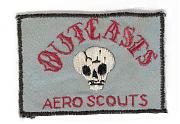Hi Ken,
I should have qualified it a bit, I was thinking about the decision to commit military force in the first place - provided somebody has left you an option, which may not always be so. I think once you cross that line, be prepared for all that comes with it - doesn't mean you have to go there, but you don't want to be unprepared to if the enemy does. We should not try and change the nature of something to suit our objective - we've suffered from that one before.I'd add that the Hippocratic oath model, 'first do no harm,' is at best extremely difficult to accomplish and at worst a wishful dream if war of any type at any level is involved. War is by nature harmful and you absolutely cannot clean it up.
With regard to the other elements of power in more benign conditions, the operations to encourage, facilitate, or reinforce stability might be pure DIE with no apparent M, the state in question may just not be at that point where using "M" is reasonable, required, or for some other reason, palatable (lots of room under that one). Or maybe the M piece is limited to the indirect - such as facilitating/encouraging regional alliances or collective security, providing intelligence, etc.
I need to think on it some more, but every policy action I think needs to be weighed not only for its immediate value, or value in providing what looks like a painless solution (at least for the politics of the day), but it also needs to be weighed against our long term objectives and beyond a bilateral perspective. I know, hard to do, not really in our strategic culture, not aligned with our political process of reinventing the wheel every 4-8 years, but it might be a good way to work toward increased stability and developing options, as opposed to having to respond in a strategic knee jerk fashion.
Best, Rob
















Bookmarks